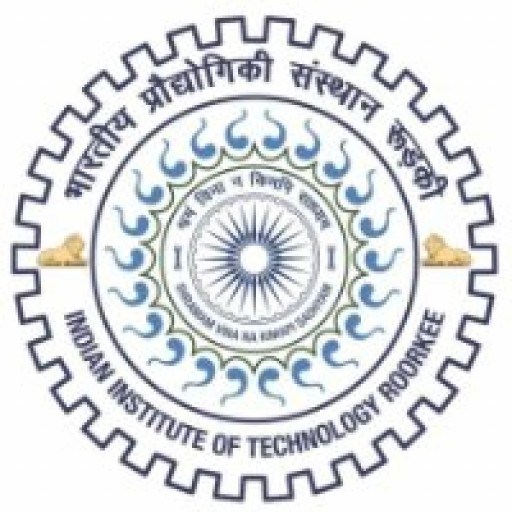Objective: To provide knowledge of quantitative techniques with application potential for transportation system.
Contents:
1. Modelling and Simulation: Model Classification, Mathematical; Physical and Analog models, steps involved in simulation, Monte Carlo simulation, validation and verification of simulation models.
2. Curve Fitting: Method of least squares, curvilinear regression, Multiple regression, checking adequacy of model, correlation, multiple linear regression (Matrix Notation)
3. Queuing Theory: General structure, operating characteristics, deterministic queuing model, probabilistic queuing models, and simulation of queuing system.
4. Multivariate Data Analysis: Vectors and Matrices, Simple estimate of centroid, standard deviation, dispersion, variance and co-variance, correlation matrices, principal component analysis.
5. Forecasting Models: Moving averages, exponential smoothening, trend projections, causal models, time series analysis of vehicle growth & accidents.
6. Design of Experiments: General principles, completely randomized design, randomized block designs, latin square design, analysis of co-variance.
7. Neural Networks: Basic concepts; neural network architecture, back propagation networks
Students admitted to the graduate programs of study at IIT Roorkee go through a process of selection prior to their admissions. The process of selection is administered at the national (All India) level or at the Institute depending on the program of study. For detailed information of the Institute and different programs, download the information brochure given below.
GATE (Graduate Aptitude Test in Engineering), The Graduate Aptitude Test in Engineering is an All - India Examination conducted by the seven IITs and IISc Bangalore, on behalf of the National Coordinating Board - GATE, Department of Education, Ministry of Human Resources Development (MHRD), Government of India.
JAM (Joint Admission Test to M.Sc) for admission to M.Sc programmes at the IITs. From year 2005 admissions to MCA programme at IIT Roorkee are also made through JAM which were previously through AIMCET.
This Institute offer courses leading to two-year Master of Science degrees in a number of disciplines. In addition, post-graduate programmes leading to M.Tech., M.Sc. and Ph.D. degrees are also offered.
Want to improve your English level for admission?
Prepare for the program requirements with English Online by the British Council.
- ✔️ Flexible study schedule
- ✔️ Experienced teachers
- ✔️ Certificate upon completion
📘 Recommended for students with an IELTS level of 6.0 or below.
The Institute offers merit-cum-means scholarship to 25% of undergraduate students. Several other scholarships are announced from time to time. Bank loans are also easily available whenever required. Financial help is provided as Institute free studentship and scholarships to undergraduate students belonging to the scheduled castes and scheduled tribes.
Students admitted to the 2-year M.Sc. degree in sciences are also awarded merit-cum-means scholarships. A number of scholarships, teaching / research assistantship schemes provide financial support to students of M.Tech. and Ph.D. programmes. Sponsored (full-time as well as part-time), self-financing foreign students and M.B.A. students are , however, not eligible for benefits of this scheme. Students are encouraged to earn while they learn.
Prizes and certificates are given to students on the basis of their performance in curricular, co-curricular and extra curricular activities.
Program Title: Quantitative Techniques for Infrastructure Systems Analysis
The course on Quantitative Techniques for Infrastructure Systems Analysis at the Indian Institute of Technology (IIT) provides students with comprehensive knowledge and skills necessary to analyze, model, and optimize infrastructure systems using advanced quantitative methods. This program is designed to equip students with a robust understanding of various mathematical and statistical tools essential for decision-making in the context of infrastructure planning, development, and management.
The curriculum covers fundamental topics such as optimization techniques, simulation modeling, decision analysis, queuing theory, network analysis, and data analysis methods. Students learn to apply these techniques to real-world infrastructure issues related to transportation, water resources, energy systems, urban planning, and environmental management. A strong emphasis is placed on integrating these quantitative approaches with engineering principles to facilitate effective solutions to complex infrastructure challenges.
Throughout the program, students engage in laboratory exercises, case studies, and project work that enhance their practical understanding of the theoretical concepts learned in class. Interdisciplinary collaborations are encouraged to foster innovative solutions and holistic approaches in infrastructure systems analysis. The program also emphasizes the use of cutting-edge software tools and computational methods to model and analyze large-scale infrastructure systems efficiently.
Graduates of this program are well-positioned to pursue careers in infrastructure planning agencies, government departments, consulting firms, and research institutions. They can contribute to policy formulation, project evaluation, risk assessment, and sustainable development initiatives. The interdisciplinary nature of the program ensures that students gain a holistic perspective and are prepared to address the evolving challenges in infrastructure systems management.
The faculty responsible for the program comprises experts in transportation engineering, water resources engineering, energy systems, operations research, and applied mathematics. The program is part of IIT’s commitment to fostering innovation and excellence in engineering education, aligning with national goals for sustainable development and infrastructural resilience.
Admission to the program typically requires a background in engineering, mathematics, or a related field, along with relevant academic performance and, in some cases, professional experience. The program duration is usually one academic year for a postgraduate diploma or similar qualification, depending on the curriculum structure.
Overall, the Indian Institute of Technology’s offering in Quantitative Techniques for Infrastructure Systems Analysis aims to develop professionals who are capable of employing quantitative methods effectively for the planning, analysis, and management of critical infrastructure systems, ultimately contributing to the socio-economic development and sustainability of urban and rural environments.


